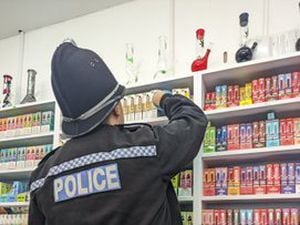Will we ever know the truth over murder of Kevin Nunes?
It has taken four years with reports running to tens of thousands of pages, and the costs are likely to be in the millions.
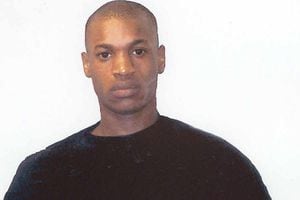
But the public - and importantly the relatives of Kevin Nunes - are no closer to knowing the truth of how Staffordshire Police botched a murder investigation which led to the promising amateur footballer's killers walking the streets.
Matthew Ellis, the Staffordshire Police and Crime Commissioner, yesterday decided to go against advice from the police watchdog and said Temporary Chief Constable Jane Sawyers should not face a disciplinary panel over the affair.
2008 – Five men are jailed for Mr Nunes' murder after a trial at Leicester Crown Court.
2011 – The IPCC launches an independent investigation into 14 former and serving Staffordshire Police officers. Led by Chief Constable of Derbyshire Mick Creedon, it focuses on how a protected witness was dealt with and disclosure issues prior to the trial.
2012 – The Court of Appeal quashes the convictions of all five men.
2014 – The Crown Prosecution Service decides five of the officers will face no criminal charges in January and that the remaining nine will not face charges in November.
2014 – The IPCC completes its report in November and sends it to the relevant forces.
Mrs Sawyers - along with a total of 14 former and serving Staffordshire officers - has been under investigation by the Independent Police Complaints Commission (IPCC).
She was previously the superintendent in charge of professional standards at Staffordshire Police at the time of the original Nunes murder investigation which eventually saw five men convicted of the 20-year-old's murder have their jail sentences quashed in 2008 after a series of police failings were exposed.
Four were released while one is still behind bars for a separate murder.
Three top cops, including the current Chief Constables of Gloucestershire, Northamptonshire, and the Assistant Chief Constable of West Midlands, are embroiled in the investigation with Mrs Sawyers.
Kevin Nunes was aged 20 when he was gunned down and beaten in a country lane nearly 13 years ago.
His body was discovered in Pattingham in 2002 after a run-in with Wolverhampton drug dealers.
Around 180 officers were involved in the huge probe surrounding his murder, with officers making inquiries as far afield as Jamaica.
A total of 1,060 statements were taken and more than 200 pieces of information were received from the public after media appeals following the shooting.
Key pieces of evidence, and the evidence of Simeon Taylor in particular, was crucial. He told murder jurors how he had driven the car which carried Mr Nunes to his death.
And his evidence was made all the more important because officers were met with a wall of silence when trying to investigate the murder.
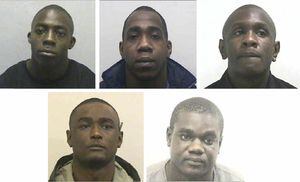
In 2008, Levi Walker, Adam Joof, Owen Crooks, Michael Osbourne and Antonio Christie were jailed for the murder.
But the five men had their convictions quashed after a catalogue of failings by Staffordshire Police were brought to light at a Court of Appeal hearing in London in 2012.
It was described as a 'serious perversion of the course of justice' by a top appeal judge.
It came after Detective Inspector Joe Anderson turned whistleblower and reported there was 'corruption, falsification and dishonesty' in the Staffordshire Police Sensitive Policing Unit which was responsible for witness protection scheme that Simeon Taylor joined in March 2005.
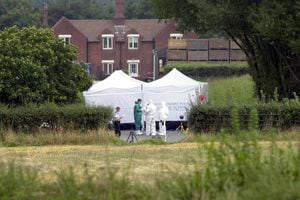
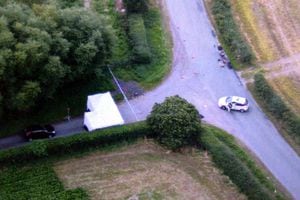
Superintendent Joe Costello was requested by then-Assistant Chief Constable Suzette Davenport to head a review of the unit.
In 2007, a damning 73-page report, known as the Costello Report, was produced many months before the murder trial but kept secret.
Had it been disclosed, the defendants' legal team would have known that Inspector Anderson was in a position to give evidence which would have seriously undermined both the credibility of Simeon Taylor and the integrity and the honesty of the system put in place to handle him.
With the report the defence could have shown that the Sensitive Police Unit was a dysfunctional organisation fractured by in-fighting, containing officers whose honesty and integrity were open to question and whose documentation in respect of Simeon Taylor could not be trusted.
It has also emerged that a detective handling Taylor was involved in an 'intimate' affair with a disclosure officer involved in the case and that the pair used to meet where Taylor was being housed. It raises serious concerns over whether information relating to evidence in the case was contaminated and passed on to Taylor.
A report by leading prosecutor Mr Richard Whittam QC also revealed how a detective inspector involved with the case believed there was an 'At Any Cost' culture in relation to Taylor giving evidence.
And it also disclosed that Taylor would drink alcohol with his minders - even going to nightclubs.
An investigation and report under the name Operation Kalmia was compiled by Derbyshire Chief Constable Mick Creedon under the guidance of IPCC.
The Crown Prosecution Service ruled last year that none of the 14 officers should face criminal proceedings.
The IPCC then presented the report and recommendations to forces where the officers under investigation currently work.
They include, Mrs Sawyers, and an other unnamed officer at Staffordshire; Chief Constable of Northamptonshire Adrian Lee; the Chief Constable of Gloucestershire Suzette Davenport; and Assistant Chief Constable of West Midlands Police Marcus Beale.
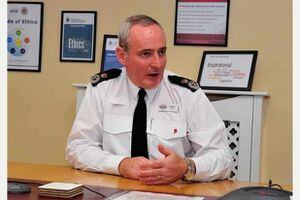
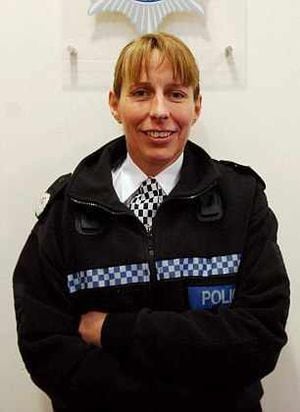
Eight other officers have retired and cannot face disciplinary action.
Mr Ellis has made public his recommendation that Mrs Sawyers should not face a disciplinary hearing - but this is believed to be against the recommendations of the IPCC.
The IPCC will make the final decision on all officers but Mr Ellis, who commissioned two independent reports into Operation Kalmia, said it would be 'tricky' for the IPCC to go against what he said.
"The issues, allegations and recommendations outlined in these documents were substantial, complex and detailed – and it was important that I gave this very serious matter thorough and careful consideration," he said.
"To make sure my considerations were thorough, informed and logical, I also commissioned two pieces of separate independent advice - one from a leading, specialist Queen's Counsel, and the other from the Head of Professional Standards at a police force outside Staffordshire.
"My conclusion is that, whilst there were undoubtedly different actions and decisions that should have been taken at the time, the IPCC report does not produce evidence that Mrs Sawyers has a case to answer in respect of misconduct or gross misconduct.
"I have been clear, however, in my letter to the IPCC that Jane Sawyers could have been more intrusive and sceptical about the actions of others at the time. But in the climate and culture of the times 10 years ago, there is no evidence that there was such a breach of professional behaviour to justify a conclusion of gross misconduct or misconduct."
In an unprecedented step, Mr Ellis revealed his recommendation yesterday lunchtime and then faced questions for over an hour from his Ethics,
Transparency and Audit Panel about the decision.
Normally such things are shrouded in secrecy and released by the IPCC.
He seemed to express great frustration at the whole way the investigation had been conducted and the IPCC procedures.
When challenged whether the decision would be seen as a whitewash, he said: "From the word go I have been trying to bring to public life and decision making, accountability and transparency which is broadly non-existent.
"I would happily publish every page of evidence I have been given and in the fullness of time I hope it will come out."
Mr Ellis said that he stood by his decision, and the findings of his independent reports, even though they appear to draw different conclusions than IPPC's own report.
He said :"Part of it is a judgment. There's a lot of people involved in this and a sliding scale of who is culpable. I think it is fair to say when this comes to light eventually there will be clear areas why I took a different view."
Temporary Chief Constable Jane Sawyers said: "I welcome the determination the Police and Crime Commissioner has reached and remain grateful for the support family, friends and colleagues have given me during the investigation. I would like to reiterate that throughout the investigation my focus has been on continuing to deliver the very best I can and helping to keep the people of Staffordshire safe and reassured. This remains my priority."
Meanwhile the wait for the final decision drags on.
The Express & Star understands the IPCC is now just waiting for West Midlands Police to send in its recommendation before it decides whether anyone will be held accountable for this sorry affair.



